美高教界大地震!终身教授不再是铁饭碗 非升即走?
文章来源: 量子位
10/20/2021
现在,“终身教职”也不再是个绝对稳定的职位了。
佐治亚州大学系统出台了一项新政策,允许大学管理部门在没有教职工参与的情况下,直接解雇终身教授。

这意味着包括佐治亚理工学院在内,佐治亚州的25个高校、几千名终身教授都要面临评估、考核体系的新压力。
政策一出台,整个高校体系一片哗然。
反对最激烈的是美国大学教授协会(AAUP):
这一举动将破坏保护学术自由的风气。学术自由对于高等教育的教学、研究质量来说,恰恰是不可或缺的。

佐治亚州已经有超过1500名教授签署了反对请愿书。
但也有不少网友认为,终身教职的废除也能给教授一些危机感:“老人不去新人不来。”
这究竟是一个什么样的政策?
佐治亚州大学系统这样做的真正原因是什么?
终身教职不再“终身”
据AAUP表示,这项新政策目前已经被董事会批准,“19名成员一致通过这项措施”。
源文件中,与撤销终身教职相关的具体是这么几段话:
每位终身教职员工应在获得终身教职后五年内参加终身教职后的评审,此后至少每五年参加一次评审……如果终身教职工连续两年在领域内的表现被评为不达预期,就要接受纠错检查,包括改善计划……如果教职工未能按改善计划规定取得足够进步,学校应酌情采取补救措施。具体来说,补救措施可能包括但不限于:暂停支付工资、减薪、撤销终身教职、解除教职等。

因此,如果一名终身教授连续两年在教职评审中取得不合格的成绩,学院管理部门就能考虑直接撤销这名教授的终身教职。
那么,具体会经过什么样的评审呢?
据政策显示,除了教学评估以外,评审内容中还需要包括学生成绩、研究和奖学金,以及教职工所在高校或机构的评估,同时包括上一次的评审结果。
对于这项政策,内华达大学拉斯维加斯分校助理教授Katherine Marcal表示,尽管目前终身教职体系有大量问题,但如果没有一个明确的方式来维护学术自由的话,对于高校教育和科研将是一种灾难。

其实,终身教职评估其实一直存在,不过撤销职位确实是头一回见。
美国乔治敦大学教授Donald P. Moynihan表示,自从佐治亚大学系统创立以来,还没有一个时期遇见过这么严厉的审查,试图把任何失误都转变为开除的理由。

所以究竟是怎么回事?
为何提出这个政策?
简单来说,就是财务上的问题。
据福布斯新闻网站分析,终身教职其实会带来巨大的成本,甚至很难因为学术需求变化而灵活将资源分配到其他用途上。
同时,一些教授在获得终身教职后工作量很小、效率也变得低下,目前终身教授的授课数量不到整个课程数量的一半。
虽然目前有一些教职工工会,但这些公会同样不能解决学术财务上的问题。
有不少网友支持这一观点:
说白了就是财政困难了,学校需要减少一些高薪低产能的老师。

但也有网友表示,这种情况下博士生反而跑得更快:

有网友说得更直白一点:
这是要把国内的非升即走制度改进后,逆向引入美国?

事实上,佐治亚州并非第一个提出终止终身教职的地区。
据Des Moines Register报道,今年3月份,爱荷华州曾经考虑终结这一地区三所公立大学的终身教职岗位。

只是在民调的时候显示,爱荷华州不少人反对这个提议(39%的人表示反对,36%的人支持,其余不确定),最后它也没能成为一项政策。
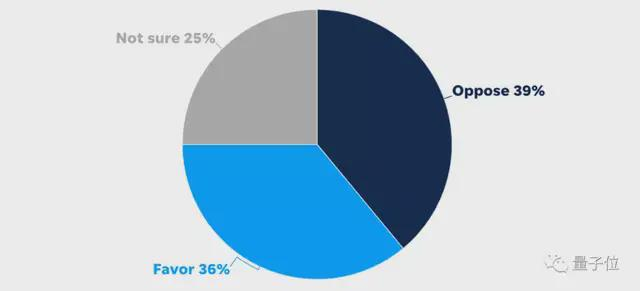
但现在,佐治亚州大学系统董事会直接通过了这一政策。
据陈怡然教授表示,佐治亚州以外的高校已经开始到处挖人了。

不知道这波佐治亚州各大高校的排名会波动成什么样。
文件传送门:https://www.usg.edu/regents/assets/regents/documents/board_meetings/Agenda_2021_10_12-13.pdf
参考链接:
[1]https://www.usg.edu/regents/assets/regents/documents/board_meetings/Agenda_2021_9_9.pdf
[2]https://twitter.com/AAUP/status/1448069177244221441?s=20
[3]https://weibo.com/dukechenyiran?is_all=1#1634603761122
[5]https://www.forbes.com/sites/richardvedder/2021/10/14/tenure-controversy-in-georgia/
What do Georgia’s tenure changes mean for professors at the state’s public universities?
By Will Peebles | Savannah Morning News
10/20/2021
The Georgia Board of Regents recently approved changes to post-tenure review guidelines, and critics say it will make firing tenured faculty members easier and bringing new talent to the University System of Georgia more difficult.
Before the changes, the firing of a tenured professor would include a peer review process with other faculty. But now, professors at 25 of Georgia’s 26 public universities, including Savannah State University and Georgia Southern University, can be fired after failing two consecutive annual reviews.
Additionally, if a professor fails to complete an improvement plan after a performance review, an institution can fire them for that alone.
Additionally, if a professor fails to complete an improvement plan after a performance review, an institution can fire them for that alone.
Broadly, the USG requirements for tenure include excellence in teaching and instruction, academic achievement and service to the institution, profession or community. But the changes add another facet to the evaluation of tenured faculty: student success.
These requirements are flexible, and the specifics are more clearly defined by each individual school.
As of Oct. 19, a petition speaking out against the changes had 1,519 signatures. The move is attracting criticism from outside academia as well, including from Stacey Abrams, who is expected to mount a gubernatorial run in 2022. Abrams has tweeted her belief that the changes would “undermine our public universities.”
Georgia’s new tenure policy is the only one of its kind in the country, according to the American Association of University Professors, a nonprofit association made up of university faculty and other academic professionals from around the country. The group argues Georgia shouldn’t label faculty appointments as tenure given the changes.
“Georgia is a huge outlier now, because that’s the whole point of tenure: it includes due process protections,” Irene Mulvey, president of the professors’ association, told the New York Times last week. “There should now be a new word for it in Georgia, because tenure will not mean tenure there.”
What’s the process now?
From a mile-high view, tenure has a pretty simple goal: to protect the academic freedom of professors and the autonomy they have while teaching, researching or publishing the findings of their research, even if their findings are unpopular.
It also serves as a safeguard for academic independence, freeing tenured professors from external pressures from political groups or corporations.
After a professor is tenured in Georgia, he or she must participate in a post-tenure review within five years, and at least one every five years after that. These reviews already existed prior to the policy change.
If a tenured faculty member’s performance is found unsatisfactory in an annual review, be it overall or in one particular area, they’ll be presented with a remediation plan. If their performance hasn’t improved the next year, they’ll undergo a corrective post-tenure review, separate from the once-every-five-years review.
The metrics by which faculty are measured in these reviews are up to each individual school. However, the USG requires that the process include an evaluation of the faculty’s instruction, their contributions to the school’s research and scholarship efforts, their service to the school, and now, student success.
But there’s one major area where the consequences of the new review process differ from the previous system. If the results of a faculty’s post-tenure review are unfavorable, then a performance improvement plan will be created by their department chair and dean during a consultation with the faculty member in question.
At this point, if a faculty member refuses to engage in the improvement plan, the newly written rules allow the university to fire them on the spot, tenured or not.
If the faculty member goes along with the performance improvement plan and complete that process successfully, he or she goes back on for the regular once-every-five-years post-tenure review.
But if the dean and department chair deem the performance improvement unsatisfactory, then “the institution shall take appropriate remedial action corresponding to the seriousness and nature of the faculty member’s deficiencies,” the new policy reads.
Those “remedial actions” – punishments – can include suspension of pay, reduction of salary, revocation of tenure, all the way up to being fired outright.
But if the dean and department chair deem the performance improvement unsatisfactory, then “the institution shall take appropriate remedial action corresponding to the seriousness and nature of the faculty member’s deficiencies,” the new policy reads.
Those “remedial actions” – punishments – can include suspension of pay, reduction of salary, revocation of tenure, all the way up to being fired outright.
Despite the public outcry from many, some believe the changes will not dramatically change the post-tenure review process.
Tenured Associate Professor Nancy Remler, of Georgia Southern University’s Armstrong Campus, has some concerns about the changes, specifically those regarding the new facet of evaluation, student success.
“Maybe some faculty worry that situations beyond their control can affect the way their student success work is evaluated. For instance, if a student exposed to COVID has to quarantine for two weeks, I would do my best to accommodate that student, but I would also worry the distance would impede my ability to help the student succeed,” Remler said. “Still, I think the universities also have the opportunity to articulate what student success looks like and to identify what faculty can provide as evidence that we support student success.”
But ultimately, she said, student success was always part of the equation, even if it wasn’t codified by policy.
“Although the USG’s flagship institutions have a very high research priority, all of Georgia’s public institutions emphasize the importance of teaching and learning… Foremost, I consider myself a teacher, so I already do a lot of work to support student success,” Remler said. “So this new policy won’t change the job I’m already doing. When I put my portfolio together, I’ll just have an additional label.”
Tenure changes coming to Georgia universities
By Thomas Wheatley
10/20/2021
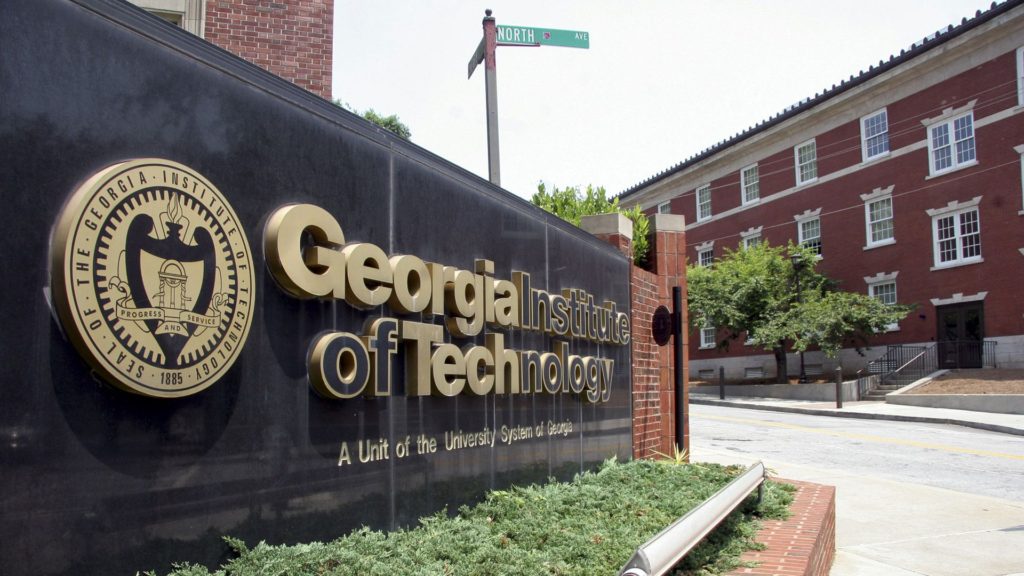
Professors are protesting a controversial policy change approved yesterday by the Board of Regents that they say will give administrators the power to terminate tenured faculty.
- The policy, critics say, essentially eliminates the concept of tenure — the peer-awarded and peer-reviewed status in higher education that gives professors academic freedom — at 25 public colleges and universities in Georgia.
Why it matters: Tenure can allow faculty to speak freely and present ideas, no matter how controversial, to students, colleagues and the public.
Just as important, says Matthew Boedy, a professor at the University of North Georgia and the president of the American Association of University Professors’ Georgia conference, the status affords due process, because tenured faculty are supposed to be reviewed and held accountable by their faculty peers, not administrators.
- The opportunity for tenure helps attract academic talent to the state, which in turn helps educate a future workforce.
- The practice has come increasingly under fire from conservative officials in recent years, including attempted bans in Iowa and Missouri.
Context: Last year, the regents, the governing body of Georgia’s public college and university system, formed a working group to reexamine the post-tenure review process — the first time since 1996, a university spokesperson says.
- Language introduced last month that professors and academic advocates said would have allowed administrators to fire tenured faculty without cause was removed after pushback.
- More than 1,500 university system faculty members have signed a petition protesting the overhaul.
Details: Under the new policy, professors who have back-to-back unsatisfactory administrative reviews could choose to follow an improvement plan developed by the department chair, dean and the faculty member.
- If they do not show improvement, they risk seeing a drop in salary or losing tenure or even their job.
- Previously, tenured professors could be fired only for reasons related to “professional fitness,” the AAUP says, and only after a hearing before a faculty body.
What they’re saying: The change is intended to “promote faculty development and accountability as well as to align these with our mission of student success,” says Regent Erin Hames, according to the AJC.
- Boedy tells Axios that “The Regents sent the university system — in their own words, a highly regarded system — over a cliff no one has crossed like this before. … Statewide faculty are in shock, still not quite sure why the group of people who claim to care for the reputation of the university system just ruined it.”
What’s next: Prior to the vote, the AAUP had threatened to launch an investigation if the regents carried through with the policy change. That could be followed with formal censure of Georgia’s university system.

Tel: 551-580-4856 | Email: F.WINNIE.S@GMAIL.COM
诚招美国和加拿大法律服务代理
因公司发展需要,诚招美国和加拿大法律服务代理。
要求:
懂英语、或西班牙语、或法语。
能合法工作有社安号或工号。
无需改行, 可以兼职。
大学生和有销售经验优先考虑。
自雇生意公司发美国报税1099,加拿大T4A
有意了解详情, 请扫码加微信, 非诚勿扰!

Complexity and One-Party Rule in the Modern University
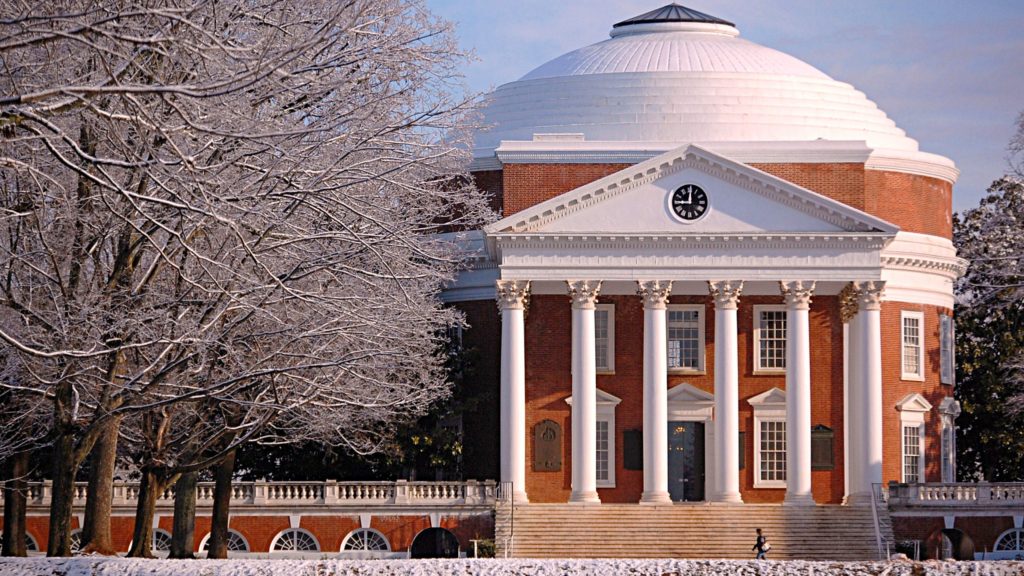
By Allan C. Stam | Bacon’s Rebellion
8/24/2021
Large research universities have evolved into amalgamations of housing complexes, food service industries, semi-pro sports franchises, health systems, research enterprises, vocational training centers, and education systems. The administrative design of complex universities is such that they are nearly incapable of being efficiently managed. Running a modern research university is a bit like running a small city absent democratic accountability. Both jobs are growing more complex with layers of byzantine regulations often overwhelming their leaders.
Both types of organizations, universities and city management, are also inherently political which today means increasing polarization and conflict. Political systems distribute resources and services not by market means, but instead by power-based mechanisms. At the same time as the administrative burdens in our universities rises, they have, like most large cities, become single-party systems.
The combination of these two challenges: single-party rule combined with unmanageable complexity is leading universities down an unfortunate road. So-called administrative bloat is a direct consequence of excessive administrative complexity. Ideological intolerance and the stifling of free speech and thought is the consequence of universities’ emergent political monoculture. The combination of these two factors has created tremendous risks for the future of the American research university.
The two factors are intertwined. Excessive complexity is the major factor that has enabled the ideological puritans to take over the University. In the hyper-complex university, the left hand often does not know what the right hand is doing. Facing little local competition, exclusionary and sectarian ideas flourish and spread.
The ideological Puritans arrived first in the humanities which historically lean to the left of the political spectrum. They branched out into the social sciences under the guise of identity politics and postmodernism. They are now taking aim at the STEM fields. They have taken over the management of student-life administration and services. The poststructuralist movement is an identity-based restoration of a Marxist agenda that threatens to infect the entire university ecosystem.
There is a well-developed literature on the effects of increasing concentrations of power on the quality of city and state management. What we know about single-party political systems applies in good measure to universities as well. In single-party systems, corruption tends to be endemic. Bad ideas are rarely filtered out. Logrolling rather than merit tends to determine resource allocation. Ideologues of the leading party routinely crush Innovative ideas advanced by political minorities.
As universities have evolved from systems characterized by balances of power between competing groups to single-party bureaucracies, their leaders and interests have grown increasingly distant from the constituencies they were designed to serve. Compounding the problem is the extraordinary administrative complexity of the modern research university.
Why do universities matter so much, or put another way, why should we care? As Thomas Jefferson pointed out, education is essential to a well-functioning democratic system. If the Democratic populous loses faith in the education system, they are losing faith in democracy itself.
Lincoln advanced this vision with the Morrel Act. Vannevar Bush, the preeminent and visionary science administrator during World War II and the Cold War, was instrumental in developing the federally funded, public-private partnership that ties university basic science research to the advancement and success of American technology and business. Astute political leaders throughout American history have recognized that higher education resides at the core of American democracy. The happy trend for the past two hundred years has been towards, rather than away from, a dual commitment to open and free inquiry protected by tenure. This trend, along with an open and meritocratic admission process, has ably contributed to the bedrock of American democracy.
American higher education, for the past hundred years, served as the gold standard for the rest of the world. No other country has made a similar commitment both in breadth, scale, and excellence to research-based higher education as the United States has. So too can the United States claim a commitment to democracy in breadth, depth, and duration like no other country.
oday, however, as higher education risks its future, American democracy is at risk as well. The two biggest changes in universities since the 1960s are ideological homogeneity where previously there had never been such, and the rise of unbelievable administrative and functional complexity. Bureaucratically sclerotic, single-party institutions, which American universities are becoming, cannot support and sustain multiparty democracy in the states and countries in which they are embedded.
The free and open debate that multiparty democracy requires is at risk of disappearing from many American top universities and colleges. If it does so, universities will lose their ability to both foster and sustain the highest aspirations of American democracy.
University professor Allan C. Stam is a former dean of the Frank Batten School of Leadership and Public Policy at the University of Virginia. A former member of U.S. Army Special Forces, his academic work is focused on war outcomes, war durations, mediation, and alliance politics. This article was first published on August 21, 2021 by Bacon’s Rebellion.

Parents Defending Education
4/19/2021
Parents Defending Education is a new grassroots organization determined to fight woke indoctrination in classrooms nationwide. “We believe our children’s education should be based on scholarship and facts, and should nurture their development into the happy, resilient, free-thinking, educated citizens every democracy needs,” the organization says.
The website DefendingEd.org features a robust IndoctriNation Map, where visitors can “learn about parent organizations, incidents and FOIA’s” in their area. And Parents Defending Education wants to hear from you: click here to help them shine a light on educational malfeasance in Fairfax County Public Schools!
A new video from Parents Defending Education succinctly conveys the organization’s vision. “I want my child to learn how to think, not what to think,” the voiceover says. “But in K-12 schools today, activists are pushing a radical new agenda. Instead of creating educated individuals, they are trying to create activists, turning blank slates into members of racial, ethnic or gender groups in conflict with each other — but it doesn’t have to be like this.”
Source: https://fairfaxgop.org/watch-parents-defending-education/
A Lawsuit Challenges TJ Admission Changes
Parents sue to stop TJ’s admission policy changes, alleging anti-Asian race discrimination.
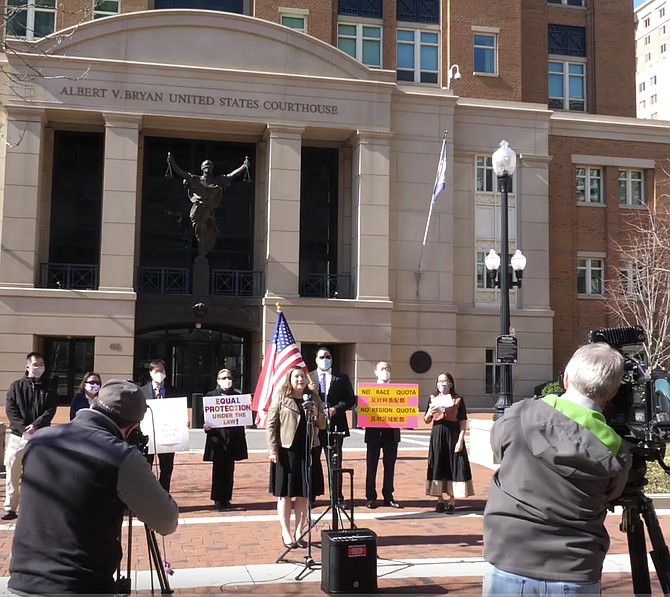
By Mercia Hobson
3/19/2021
The Fairfax County School Board and Fairfax County Public Schools Superintendent Dr. Scott Brabrand face a new lawsuit filed against them last week in United States District Court in Alexandria. The lawsuit alleges race discrimination against Asian-American students by the School Board and the superintendent in changing the admissions process to Thomas Jefferson High School for Science and Technology, known as “TJ.” The Pacific Legal Foundation filed the civil suit on Wednesday, March 10, on behalf of their client, Coalition for TJ, a group of mostly concerned parents at the high school.
#“This type of racial balancing is unconstitutional,” said Pacific Legal Foundation attorney Erin Wilcox at a press conference held that morning outside the courthouse.
Six Spaces Home Staging

Contact: Hongliang Zhang
Tel: 571-474-8885
Email: zhl19740122@gmail.com
#The Plaintiffs allege FCPS’ recently-implemented overhaul of the TJ admissions process changes, which eliminated the long-standing race-neutral standardized admissions test, is specifically aimed to reduce the number of incoming Asian-American students to racially balance the school according to the racial demographics of the school. “Up until this year, admissions to TJ have been race-blind,” said Wilcox. “Unfortunately, Fairfax County Schools officials apparently believed that this is too many Asian students,” she said.

Pacific Legal Foundation holds a press conference on March 10 announcing that they filed a lawsuit against the Fairfax County School Board and Superintendent Scott Brabrand on behalf of their client, Coalition for TJ, challenging recent changes to the admissions policy at Thomas High School for Science and Technology.
#THE COMPLAINT alleges that without the court issuing an injunction, the number of Asian-American students in the incoming TJ Class of 2025 is likely to be cut in half due to the “defendants’ stated desire to manipulate TJ’s demographics.” “The discriminatory intent they’ve shown is intertwined and an inseparable part of the policies they put in place,” Wilcox said.
#According to the lawsuit, in the fall of 2020, Superintendent Brabrand and the School Board saw a reporting requirement by the Virginia Department of Education to include the racial/ethnic make-up and socioeconomic diversity of its students, faculty, and applicants as an opportunity “to completely overhaul the TJ admissions process in order to racially balance the school’s demographics, going far beyond the minimal reporting requirements.”
#Located in Alexandria, TJ is a regional Virginia state-chartered magnet school operated by FCPS with students eligible for admission from Fairfax, Arlington, Loudoun, and Prince William counties, and the City of Falls Church. TJ is ranked the number one public high school in the 2020 National Rankings.
#The School Board voted to eliminate the TJ merit-based admissions test at its Oct. 6 work session with no public comment opportunity. The complaint quotes Brabrand during the discussion at the work session with the Board to say that eliminating the merit admissions test “eliminat[es] the testing component that squeezed out talent and squeezed out diversity in our system.” Board members said they hoped the new process increased Black and Hispanic representation in the student body.
#On Dec. 17, the School Board voted and adopted, with immediate implementation, further changes to the TJ admissions policy applicable to the incoming TJ freshman Class of 2025 and to future years. The Board adopted the challenged admissions policy that limits the number of students accepted from each county feeder middle school to the top 1.5 percent who meet the minimum evaluation criteria-GPA, student portrait sheet, problem-solving essay, and experience factors: including economically disadvantaged students, English language learners, or special education students.

#The lawsuit alleges that coupled with the high concentration of Asian-American students at four middle schools – Carson, Kilmer, Rocky Run, and Longfellow – and their history of sending large numbers of students to TJ, racial balancing could be accomplished.
#According to the complaint, the plaintiffs sought “to vindicate the rights of Asian-American public school children in and around Fairfax County, Virginia, to compete on an equal footing for admission to the nationally-ranked Thomas Jefferson High School for Science and Technology (TJ) without regard to their race.” Overall, Plaintiffs’ data analysis reported in the complaint that the student body at TJ, at approximately 73 percent Asian-American students under the merit-based race-blind admissions system would drop to 31 percent under the new racial-balancing admissions system for the Class of 2025 with “no other racial group projected to lose seats.”
#The lawsuit alleges changes to admissions violate the Equal Protection Clause of the Fourteenth Amendment “…a promise that government at every level will treat every American as an individual, not simply as a member of his or her racial group. Policies like the one implemented by FCPS stand in direct opposition to that promise.”
#THE PLAINTIFFS requested entry of an order requiring the Defendants to return to the admissions procedure for entry into TJ in the fall of 2020. “The Coalition for TJ is not going to stand for this kind of discrimination against Asian-American students and they are here to fight for equal protection for their children,” said Wilcox.
#Julia McCaskill, an immigrant, and parent of a TJ student and students in grades 8 and 6, said at the March 10 press conference that TJ does not belong to a certain race or certain group of people. Low admission rates at TJ for Black and Hispanics are the failure of the FCPS Board, according to McCaskill. “They failed those under-represented areas over the decades instead of fixing the pipeline issue. The authorities are stirring up hate against Asian-Americans hoping to slash the number of Asian-American students will fix the overdue school problem.”
#Asra Nomani, a cofounder of Coalition for TJ and parent of a senior at TJ, said during the press conference that she came to the United States at age four from India. Nomani said she was proud to be working the past nine months with families who came to the United States from communist China and eastern Europe, India, and other places where they faced injustice. “They never could have imagined that they would face injustice in America,” she said.
#A Fairfax County Public Schools spokesperson provided a statement saying, “The process continues to be race-neutral and merit-based… As a Governor’s school, we value diversity and believe that it contributes to the richness of the education at TJHSST.”
#Parents of 17 middle school students filed the initial lawsuit in November 2020 to overturn the School Board’s decision to eliminate the standardized admission test for TJ and the $100 application fee. On Feb. 2, a Fairfax Circuit Court Judge John M. Tran denied the parents’ request to require mandatory standardized testing in the admissions process. Tran said, “The debate over standardized testing belongs to educational professionals.”
#On Friday, March 12, Wilcox said that the next step would be the defendants’ response, either an Answer or a Motion to Dismiss, in approximately 60 days. “I’ve seen in various news articles that FCPS issued a statement on Wednesday. Their legal response to our complaint will be one of the documents mentioned,” Wilcox said.
Source: http://www.connectionnewspapers.com/news/2021/mar/19/lawsuit-challenges-tj-admission-changes/
Judge declines to halt elite school’s admissions changes
2/04/2021
FAIRFAX, Va. (AP) — A judge on Tuesday refused to issue an injunction to stop an elite northern Virginia high school from changing its admissions policies.
Fairfax County Public Schools is overhauling the admissions process at Thomas Jefferson High School for Science and Technology, which has been ranked as the top public high school in the country.
The school board hopes the changes will increase diversity at the school, which has long failed to attract Black and Hispanic students. Standardized tests that have long been part of the admissions process have been scrapped in favor of a more holistic review.

Supporters of the existing system sued, citing state regulations designating TJ as a school for the gifted and stating that giftedness should be measured by a standardized test.
Circuit Court Judge John Tran declined to issue an injunction that would immediately bar the changes from taking effect, but the lawsuit itself can still go forward.
A conservative legal group is also weighing a challenge based on racial discrimination against Asian Americans who currently make up a majority of the student body.
Students, Parents Challenge TJ Admissions Changes
Coalition for TJ | Press Release
11/07/2020
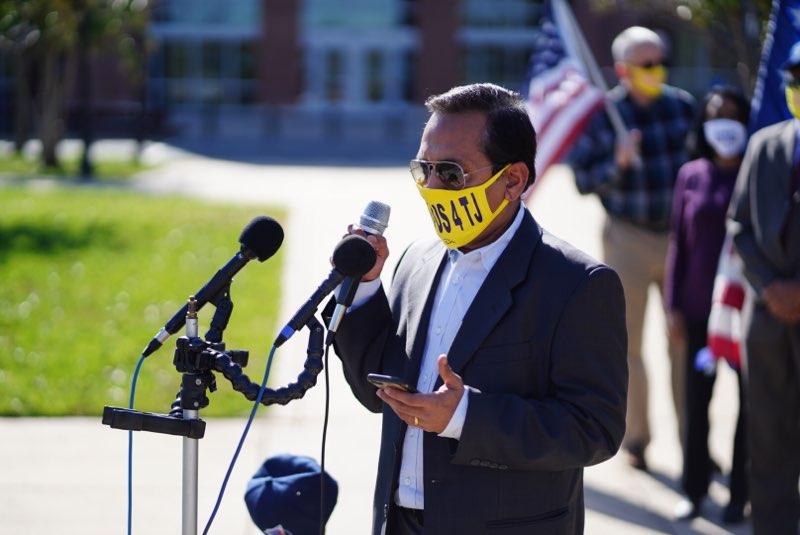
Seventeen parents filed a lawsuit against the Fairfax County School Board and Fairfax County Public Schools Superintendent Scott Brabrand for illegally changing the admissions process at Thomas Jefferson High School for Science and Technology.
TJ, as the school is known, is the nation’s top-ranked public high school, according to U.S. News & World Report. Established in 1985, the STEM-focused Governor’s School has long maintained rigorous, merit-based, race-blind admissions standards that include the administering of a set of standardized tests. In an October 6 work session, however, the Fairfax County School Board voted to abolish the school’s admissions tests, and the superintendent abruptly eliminated the tests from this year’s admissions process.
The lawsuit alleges that the school board and superintendent violated state laws and regulations requiring that a “nationally norm-referenced aptitude test” be used as part of the TJ admissions process to identify gifted learners with an aptitude for STEM. As a Governor’s School, TJ provides services to gifted students, or advanced academic learners, and receives special funding from the Commonwealth for this purpose.
Today, the Coalition for TJ held a press conference outside the Fairfax County Courthouse, announcing that the 17 parents had filed a lawsuit against school officials. “The basis for the complaint against Fairfax County School Board and Scott Brabrand is relatively simple,” Coalition for TJ co-founder Glenn Miller said at the news conference. “Virginia law, which is the superior law and controls the actions of Fairfax County and its school board, contains specific requirements that must be followed in order to admit students to TJ. Fairfax County and its school board violated those laws. As such, the Fairfax County School Board and the superintendent acted beyond their authority and acted arbitrarily and capriciously.”
The abolition of TJ’s standardized admissions tests will invariably reduce the number of Asian students at the school. The lawsuit’s 17 plaintiffs are families of current middle schoolers who are disadvantaged by the admissions changes. Plaintiff James Pan, father of a gifted middle schooler, spoke at today’s press conference. “FCPS is using the pretext of banning the test for their goal of reducing Asians at TJ,” Pan said. “The government is using a process that is plain old bigotry.”
Plaintiff and middle school parent Srinivas Akella said that he chose to live in Fairfax County for its program for gifted students and for TJ, in particular. “The school board and FCPS arbitrarily made changes to the admissions process in violation of state law,” Akella said today. “I have faith in our judiciary, and I am petitioning them as a last avenue since there was no other recourse left for me to pursue.”
Following the plaintiffs’ remarks at today’s press conference, Coalition for TJ co-founder Asra Nomani spoke of the opportunities that TJ has afforded generations of immigrants in Fairfax County. “My father came here for the American Dream. My son pursued it here in this country and is now a student at Thomas Jefferson High School for Science and Technology,” Nomani said. “We should not allow anyone — including the Fairfax County School Board and Superintendent Scott Brabrand — to stand in the way of justice. We are all here for the justice that America provides, and I applaud these courageous families.”
WATCH:
•Nov 5, 2020








